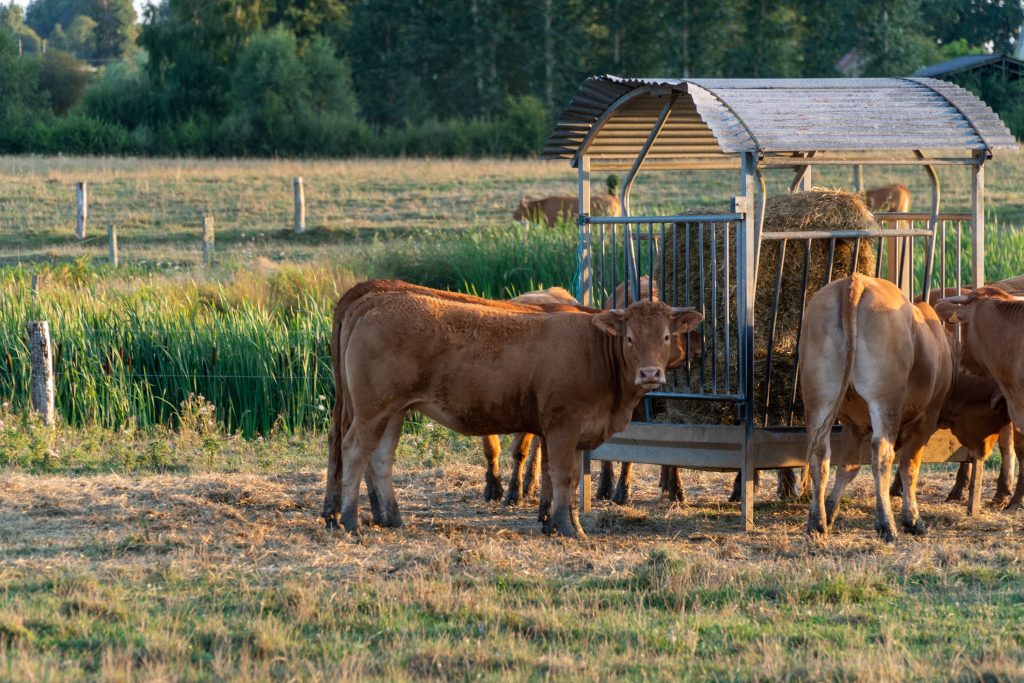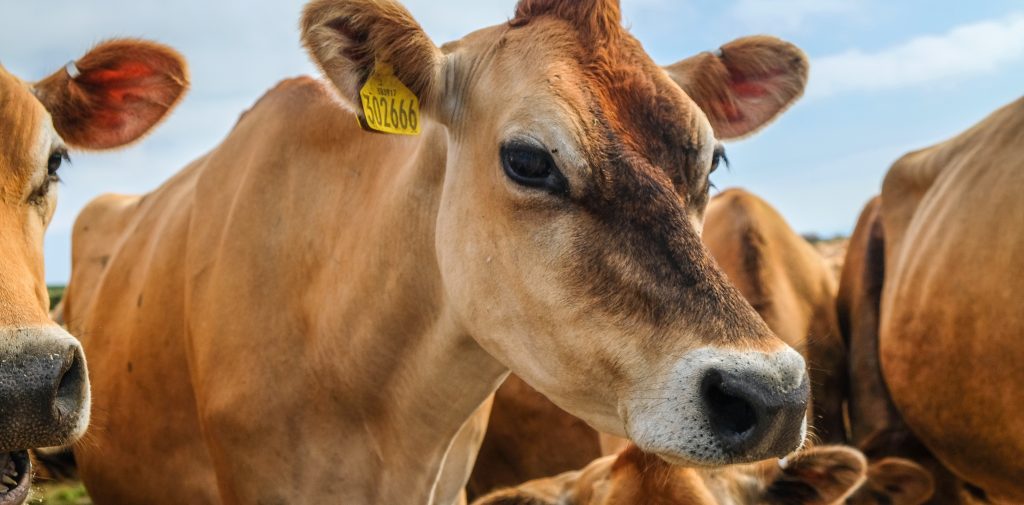Ranching is a deep-rooted culture that has built the cattle and beef community up to what we see it as today. The traditions and history surrounding cowboys is rich and inspiring. With so many people populating the world and trendy diets or misinformed media clouding the meat industry, there is a need to promote the industry to ensure its sustainability.
There is some hesitancy to share our stories, due to the aforementioned reasons, and therefore we tend to shy away from advocating the industry in a more public way than just simply continuing to produce cattle. With today’s ideology, though, transparency is more desired than ever. It’s drilled into us that we need to be telling our stories. If this is so, where do we start?
There are quite a few beef organizations in the nation, National Cattlemen’s Beef Association is the organization I found was most beneficial to my advocacy needs. Each organization tends to have their own ideas about policy related topics, so be sure to select the one that most aligns with your values in the industry. Regardless of which you choose, being involved in the industry outside of the farm and ranch is an excellent way to bring the industry together and fight against activists working to end animal agriculture.
Having worked my way through various beef industry events and aspiring to be as involved as possible I’ve been able to work with some wonderful people and learn some great things about beef cattle. Through NCBA, I have been able to share my story and work towards becoming more aware and knowledgeable about the industry I am passionate for.
Sometimes, I try to tell people about my experiences, and they aren’t aware of the opportunities in the beef industry. I think these workshops, conventions, leadership events are crucial to increasing awareness about beef and ranching and drive consumer demand.

Beef Quality Assurance
This is perhaps the best way to begin your advocacy career. Becoming BQA certified means you understand how beef cattle are raised, transported and processed. Even if you don’t have a strong advocacy presence, you can and should use this on your operation.
According to the BQA website, “Beef Quality Assurance is a nationally coordinated, state implemented program that provides systematic information to U.S. beef producers and beef consumers of how common-sense husbandry techniques can be coupled with accepted scientific knowledge to raise cattle under optimum management and environmental conditions. BQA guidelines are designed to make certain all beef consumers can take pride in what they purchase – and can trust and have confidence in the entire beef industry.”
You can take in person courses, depending on where you are located and if your local association holds trainings, or you can do an online course that takes about 2 hours to complete. You will need to become re-certified every three years.
Masters of Beef Advocacy
I participated in this in 2017, which kick-started my involvement in the beef industry. According to their website, “The online lessons address environmental sustainability, beef nutrition, animal welfare and beef safety while taking advocates through the beef lifecycle, from pasture to plate. The course also offers historical context on the evolution of the U.S. beef industry from the time the first cattle were brought to North America to today.
Upon completion of five interactive online lessons, advocates will be equipped with the communication skills and information to be confident in sharing beef stories on social media and in our communities to help others better understand how cattle are raised and how beef belongs as part of healthy, sustainable diets.”
This is a quick and easy way to learn how to share your story and offers an online community to continue education as well as interact with other advocates.
Top of the Class
As a graduate of Masters of Beef Advocacy, you are invited to apply for Top of the Class. This is a continuing education that strengthens leadership and involvement in the beef industry. With a three-day training in Denver, you join only a handful of other selected applicants to learn about consumer trends, beef nutrition and you might get to prepare your own meal in NCBA’s culinary kitchen!
You’ll also be a part of an even tighter-knit community of TOTC graduates who can help boost your advocacy efforts.

Young Cattlemen’s Leadership Programs
On your journey to becoming a great beef advocate, be sure to look into your state association opportunities to be involved on a deeper level than your county associations. During my time in Alabama, I was able to graduate from the Young Cattlemen’s Leadership Program. This was a year-long program that met every few months to tour local operations, participate in leadership trainings, and learn more about the local industry as well as how to advocate. Most states have a similar program, so be sure to look into what your options are!
Collegiate Beef Advocacy Program
According to the American National Cattlewomen’s Association, “ANCW Collegiate Beef Advocacy Program was created for beef industry advocates interested in bridging the gap between the farm and the fork. This program connects the Collegiate leaders to the beef industry where they can have unlimited access to leadership, their peers, cattlemen and cattlewomen and beef industry professionals. They will grow as individuals, strengthen their leadership skills and establish networks.”
This is a year long program that is similar to YCLP. It provides college students the opportunity to travel and experience so much of the industry. This is a scholarship opportunity as well and provides a great chance to network with ANCW.
NCBA Cattlemen’s Convention
Every year, NCBA hosts a national convention for cattlemen and women across the country. With educational seminars, social hours, fun events and chances to network, this is an opportunity to meet people from all over the beef industry.
If you want to become further involved, you can become an event ambassador, where you promote Cattle Con on social media, or you can become an intern. This is the largest beef cattle event in the industry and is really a great way to meet with other advocates.
Young Beef Leaders
According to their website, “NCBA’s YBL Advisory Group is comprised of a seven regional representatives who are elected by their respective region(s) that make up NCBA’s membership. The YBL Regional Representatives serve alongside NCBA’s Policy Division Regional Vice Presidents and hold a seat on NCBA’s Executive Committee representing the interests of young producers. Each representative is actively involved on both a state and regional level – working at a grass roots level representing the voice on the next generation of the industry.”
This is a state-based program that promotes member involvement and helps reach beef at a regional level.

Young Cattlemen’s Conference
Yet one more way to increase advocacy skills, is to be nominated for the YCC. This is an extensive 10-day leadership program with so much education packed into it. It is also through NCBA as well.
According to NCBA, “YCC begins in Denver with a comprehensive overview of the beef industry. Attendees take an in-depth look at many of the issues affecting the industry while learning what NCBA is doing to address these issues on behalf of our members. Additionally, CattleFax will provide attendees with an understanding of market information.
After a stop at the NCBA office in Denver, attendees travel to Five Rivers Cattle Feeding, the largest cattle feeder in the world with an estimated total cattle feeding capacity of 980,000 head of cattle. Afterwards, the YCC group will tour the JBS Greeley facility, one of the nation’s largest beef packing and processing plants.
During the next leg of the YCC journey, attendees will fly to Chicago for a visit with the Chicago Board of Trade & OSI, Inc., one of the nation’s premiere beef patty manufacturers.
Finally, the tour will take the group to the nation’s Capitol where they will meet with their respective congressmen and senators, as well as regulatory agencies that make decisions affecting agriculture.”







